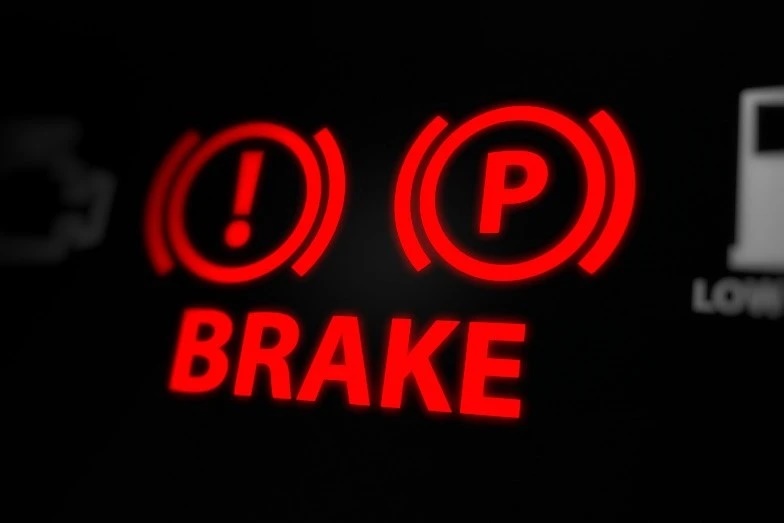How to Keep Your Brakes in Optimal Condition?

How to Keep Your Brakes in Optimal Condition?
Automev.Com Blog Post | Essential Brake Maintenance Tips
Your vehicle’s braking system is one of its most crucial mechanical components. Properly maintaining your brakes ensures both your safety and the longevity of your vehicle. There are numerous factors that determine how effectively your car stops when you hit the brake pedal. Let’s dive into the essentials of brake care and the steps you can take to keep them in peak condition.
Key Components of a Braking System
While braking systems vary between vehicles, some common components include:
- ABS Control Module
- Disc Brakes
- Drum Brakes
- Brake Booster
- Master Cylinder
- Brake Pads
- Speed Sensors
If you experience squeaking noises, vibrations during deceleration, or a spongy brake pedal, these are warning signs that your brakes need urgent attention. Ignoring these indicators can lead to costly repairs or compromised safety. Trained technicians can inspect the entire braking system for leaks, wear, or damage to keep your vehicle in top condition.
The Role of Brake Fluid
Brake fluid is the lifeblood of the braking system, facilitating the transfer of hydraulic pressure from the pedal to the wheels. Over time, brake fluid quality can deteriorate due to temperature changes or contamination. Regularly checking and replacing the brake fluid as per your vehicle’s maintenance schedule is essential to ensure optimal braking performance.
Understanding Brake Pads
Modern vehicles, especially those with disc brakes, rely heavily on brake pads. These pads reduce friction between the rotor and caliper, minimizing metal wear. Over time, brake pads wear down and need replacement. A screeching sound while braking often indicates that the brake pads have worn thin and need immediate attention.
Other components, such as rotors, drums, and calipers, also play vital roles but are typically replaced less frequently than brake pads.
Driving Habits That Preserve Brake Health
The way you drive significantly impacts your brake system’s longevity. Here are some tips to maintain healthy brakes:
-
Avoid Sudden Braking:
Plan your stops in advance and decelerate gradually. Sudden braking generates excessive heat and increases wear on the braking system. -
Adapt to Terrain:
On downhill stretches, use lower gears to rely on engine braking instead of overusing your brakes. This reduces the heat generated by friction and prevents brake fade. However, avoid this method on slippery roads. -
Use the Right Foot for Braking:
Always use your right foot for braking. Using your left foot can lead to unnecessary pressure on the brake pedal, accelerating wear. -
Prevent Overheating:
During long drives, especially in high temperatures, allow your brakes to cool down periodically. Overheated rotors can reduce braking efficiency and damage components.
Dashboard Brake Indicators: What Do They Mean?
Modern vehicles come with dashboard indicators to warn you of brake issues. These lights are often red or orange and should never be ignored.
-
Low Brake Fluid Warning:
A warning light may indicate low brake fluid levels. Topping it up promptly ensures consistent brake sensitivity. -
Brake Pad Wear Indicator:
If the pads are worn thin, the base layer may contact the rotor, triggering a warning. -
ABS Warning Light:
A separate ABS warning light signals issues with the Anti-lock Braking System. This can compromise safety in emergency braking situations, requiring immediate professional inspection.
Always refer to your vehicle’s maintenance guide to choose the correct brake fluid and understand the significance of dashboard warnings.
Maintaining a Safe Following Distance
The distance you maintain from the vehicle ahead significantly impacts braking efficiency. Larger vehicles, such as trucks, require more time and distance to stop. Adhering to the “3-second rule” or keeping a safe buffer between your vehicle and others can reduce the risk of collisions and minimize brake wear.
Final Thoughts: Why Brake Maintenance Matters
Brakes are among the most critical components of your vehicle, directly influencing your safety. Before every journey, ensure your braking system is functioning optimally. Regular maintenance, adopting safe driving habits, and addressing warning signs promptly are essential to prolonging the life of your brakes.
At Automev.Com, we offer high-quality brake components, including brake pads, rotors, and fluids, designed for heavy-duty and commercial vehicles. Browse our extensive range of aftermarket parts to ensure your vehicle’s braking system remains reliable and efficient.
Automev.Com – Your Partner in Safe Driving.

 TR
TR EN
EN

